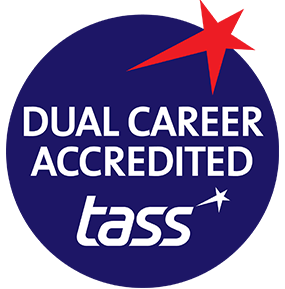The NCLT
Vision
Our Colleges and Schools will make a significant difference to the lives of young people. As a result, together we will make a positive contribution to social mobility.
Teaching for learning the “New College Way” can be summarised under the following six strands.
Learning Environment
The key feature of the teaching at New College is the creation of an inclusive, caring and welcoming learning environment to allow all individuals to flourish. Students will not learn if they are not in an appropriate physical and emotional state to learn. However, learning at its very best is about taking risks and going beyond a student’s comfort zone. So great learning environments are those where personal challenge can extend the comfort zone without being undermined by overwhelming levels of anxiety.
Teacher Subject Knowledge
All our teaching staff are subject experts who only teach on A-level and Applied General courses. Many are also examiners or moderators for their respective examination boards. We believe that teachers with strong knowledge and understanding of their subject make a greater impact on students’ learning for a number of reasons. A high level of subject knowledge is absolutely crucial if difficult concepts are to be explained clearly, precisely and simply. It is also important for teachers to understand how students think about content and be able to identify common misconceptions on a topic. Furthermore, a deep understanding of subject content allows teachers to represent abstract ideas in multiple ways to make even the most demanding concepts concrete and memorable.
Learning in Lessons
Meaningful learning happens when students have to think hard; so at New College students are expected to do just that every lesson. Knowledge is entrenched in memory by extended practice, overlearning and frequent low stakes tests and quizzes. To further enhance memory, teachers systematically review previous learning and deliberately create intervals between study to allow forgetting. Understanding is developed by requiring students to explain their thinking in their own words, to make connections between concepts, to represent ideas in new ways, and to apply their knowledge to different contexts.
Learning out of Lessons
At New College, teaching staff will set weekly directed independent learning tasks. These out-of-lesson independent learning tasks help students to develop lifelong learning and independent study skills, and to achieve their fullest academic potential. As such, directed independent learning tasks are a key tool in effective teaching and learning, and will include the following:
- Current: completing assignments (e.g. essays, projects or investigations)
- Preview: preparation for a lesson (e.g. pre-reading a textbook or watching a video)
- Review: re-capping learning (e.g. self-quizzing or past-paper questions)
Assessment
Spaced retrieval practice in the form of regular cumulative assessments is absolutely crucial if students are to succeed in the new linear qualifications at A-level and Applied General. As a consequence, every half term all our students are formally assessed using a mixture of knowledge tests, skills tests and past paper questions in each of their subjects. These assessments are marked at an appropriate standard and detailed feedback and targets for improvement are discussed with the students afterwards. The grades achieved in these assessments are recorded on our online student portal which students, parents and progress tutors can access to monitor the levels of progress in each subject. Students who are not progressing with their studies will be highlighted, leading to a wide range of supportive interventions being put in place.
Support
The staff at New College pride themselves on the level of support they give each and every one of their students. For example, every teacher has a specific timetabled session each week where they are available to support students. These sessions are known as Teacher Access Periods, or TAPs. Teaching staff will decide who needs extra support each week and invite them to attend. Of course, if a student asks for extra support they can attend as many TAPs as they wish. Students who need even more support, especially when it comes to organising their study time, will be asked to attend a quiet work space in the Intervention and Support Centre (ISC). Those students who require less support out of lesson can work in the well-resourced Learning Resource Centre (LRC).
















